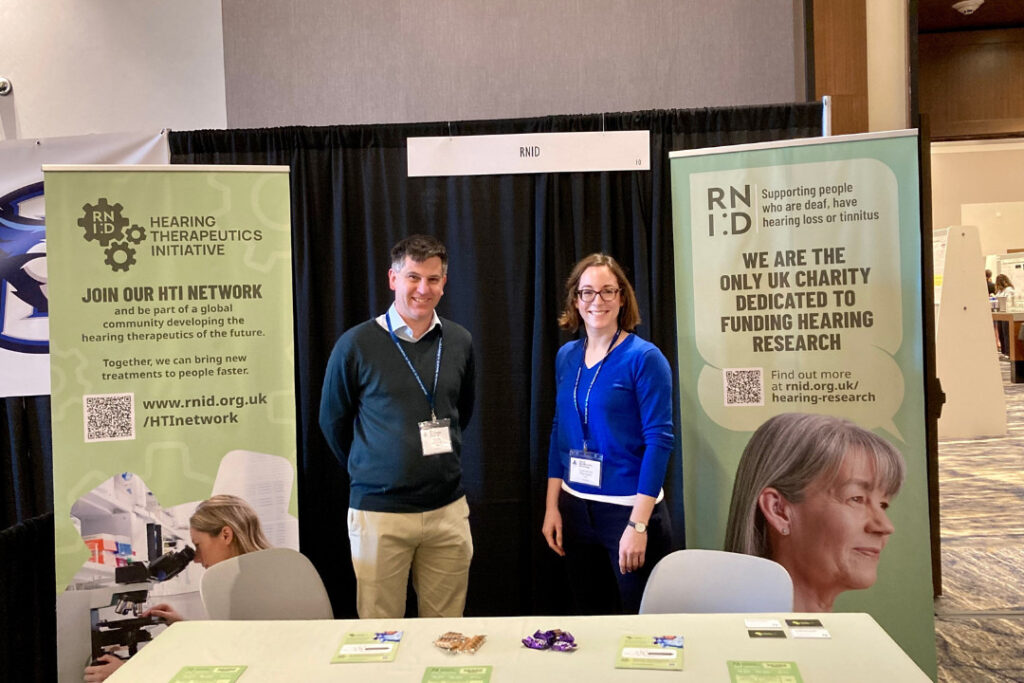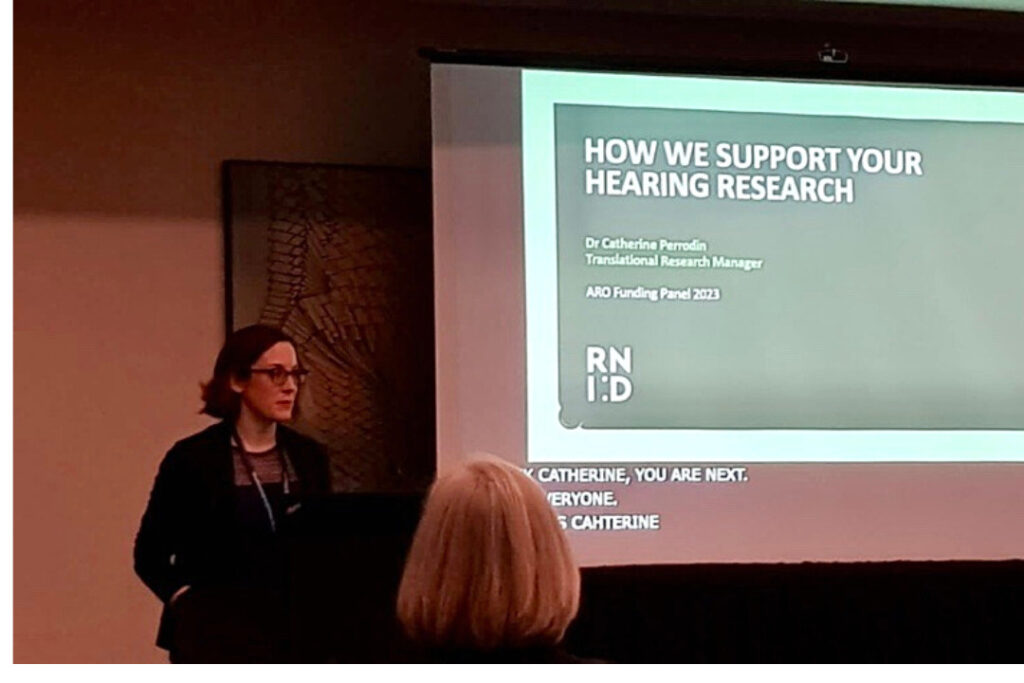
It’s a wrap! Dr Ralph Holme, our Director of Research and Insight, and Dr Catherine Perrodin, our Translational Research Manager, have enjoyed 5 days at the Association for Research in Otolaryngology – the largest hearing research conference in the world.
“Our days were filled with scientific talks, poster sessions, and
Dr Catherine Perrodinconversations with researchers from all over the world, who are focusing their efforts on better understanding hearing loss and tinnitus and ways to safely and effectively treat these conditions. We spoke to university professors leading teams working on treatments for inherited forms of hearing loss, PhD students trying to pinpoint the link between hearing loss and dementia, and clinician-scientists studying how deaf children learn how to speak.”
During the conference Catherine gave a talk to researchers to explain how they can receive funding and advice to support their hearing research. It was the first time RNID had an exhibition booth at the conference, which helped us achieve great visibility with the research community. People asked us about what we do and how we can support their hearing research.

We also met our past and current grant holders and thanked the many others who help us select the best research to fund, give expert advice on grant applications, and sit on our review panels. You can see some of these people below and read more about some of these people and projects in our previous blog.
Ralph and Catherine also attended some of the many scientific presentations and heard about the latest research updates.
Scientific presentations
The global impact of hearing loss
Professor Debara Tucci, Director of the US National Institute on Deafness and Other Communication Disorders, talked about the global impact of hearing loss and efforts to improve accessibility all over the world. She reminded every attendee that hearing loss is the fourth leading cause of years lived with disability worldwide and leads to health care and societal costs estimated to cost an annual $750 billion globally.
Hearing loss and age around the world
Debara also talked about ongoing collaborative efforts by the World Health Organisation and others to measure the impact of hearing loss, and to design a strategy to prevent, mitigate and treat the condition for people living with hearing loss and tinnitus. The challenge is slightly different in different parts of the world: in low- and middle-income countries, hearing loss mostly affects children. Although we know how to prevent and treat many causes of hearing loss in children, these measures are not routinely applied in these parts of the world. In high-income countries with an aging population, such as the UK and North America, most cases of hearing loss affect older people.
Otoferlin and gene therapy
Boston-based biotechnology company Akouos talked about their work in developing a treatment to protect the degradation of hearing in people with an inherited form of severe hearing loss, caused by a change in a gene called Otoferlin. The scientists shared data showing that this new genetic therapy is safe and effective in laboratory animals. The next step is to run a clinical trial of this promising therapy with people in the USA and other countries.
Fun fact
During the conference, the very popular Super Bowl – the final of the 2022 American football season – was shown on every available screen throughout the venue. While we weren’t too familiar with the game, we witnessed a beautiful moment seeing CODA movie star Troy Kotsur powerfully perform the US national anthem in American Sign Language.
What’s next?
- Over the coming weeks we’ll follow up with the contacts we have made, arrange meetings to continue the conversation, and share information to progress our collaboration.
- The next important scientific event we will participate in is a one-day conference we are co-hosting in London in September of this year. Keep an eye out for when registration opens.